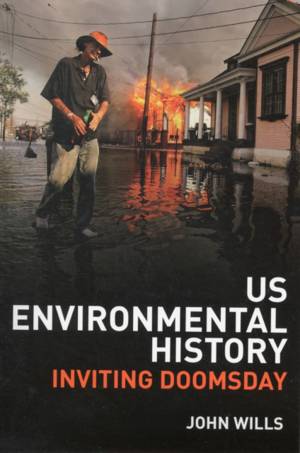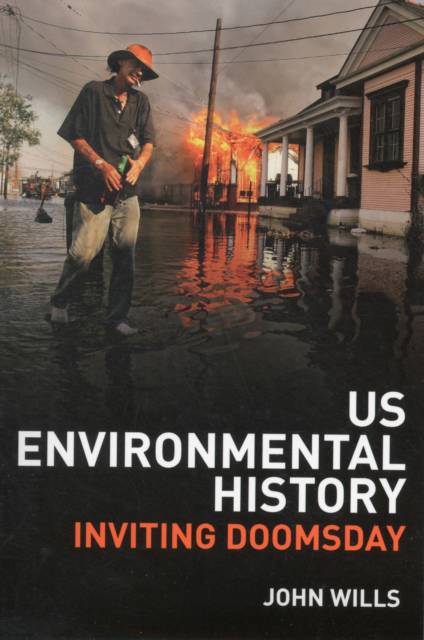
- Afhalen na 1 uur in een winkel met voorraad
- Gratis thuislevering in België vanaf € 30
- Ruim aanbod met 7 miljoen producten
- Afhalen na 1 uur in een winkel met voorraad
- Gratis thuislevering in België vanaf € 30
- Ruim aanbod met 7 miljoen producten
Zoeken
€ 64,45
+ 128 punten
Uitvoering
Omschrijving
Environmental issues in the USA are more important now than ever before. The devastation inflicted by Hurricane Katrina, growing evidence of global warming, and a struggling national energy supply highlight the unfolding crisis. Environmental fears translate into US automobile giants plying consumers with 'fuel efficient' cars in the 'MPG Lounge' of sales. Politicians talk of energy independence and getting tough on polluters. Fears gravitate around a fast-approaching doomsday scenario, an environmental endgame, of wholesale collapse, unless something is done.Yet fears of doomsday are nothing new. John Wills shows how the current environmental crisis is firmly rooted in the past. As well as explaining how today's problems are manifestations of older systems of economics, culture and politics, he also argues that America has already witnessed a range of 'doomsday scenarios, ' both real and imagined. He identifies and explores a cast of 'doomsday landscapes' that includes the Battle of the Wilderness in Virginia, the Santa Barbara Oil Spill, the 'Fable for Tomorrow' town featured in Rachel Carson's Silent Spring (1962), and Nevada's Doom Towns 1 and 2 blown apart by atomic testing in the 1950s. He reflects on contemporary ruminations over whether nature as a category endures given both the rising contamination of the US landscape and consumer proclivity for celebrating fake mementos of the outdoors (such as plastic lawn flamingos and artificial plants). And most significantly, he poses the question of whether Americans have been inviting doomsday through their long-term environmental actions.
Specificaties
Betrokkenen
- Auteur(s):
- Uitgeverij:
Inhoud
- Aantal bladzijden:
- 240
- Taal:
- Engels
Eigenschappen
- Productcode (EAN):
- 9780748622641
- Verschijningsdatum:
- 28/11/2012
- Uitvoering:
- Paperback
- Formaat:
- Trade paperback (VS)
- Afmetingen:
- 155 mm x 231 mm
- Gewicht:
- 317 g

Alleen bij Standaard Boekhandel
+ 128 punten op je klantenkaart van Standaard Boekhandel
Beoordelingen
We publiceren alleen reviews die voldoen aan de voorwaarden voor reviews. Bekijk onze voorwaarden voor reviews.











